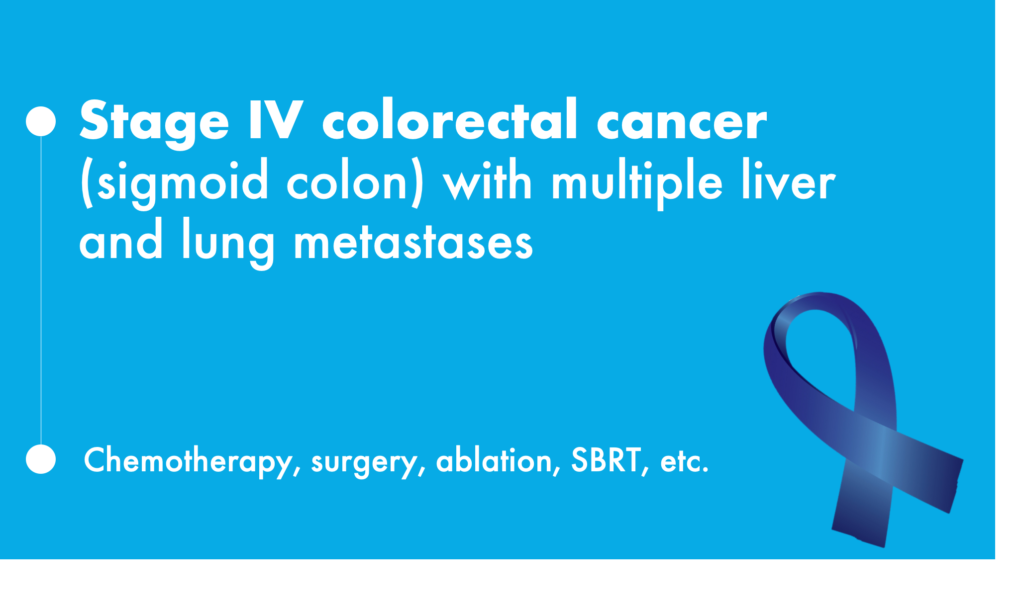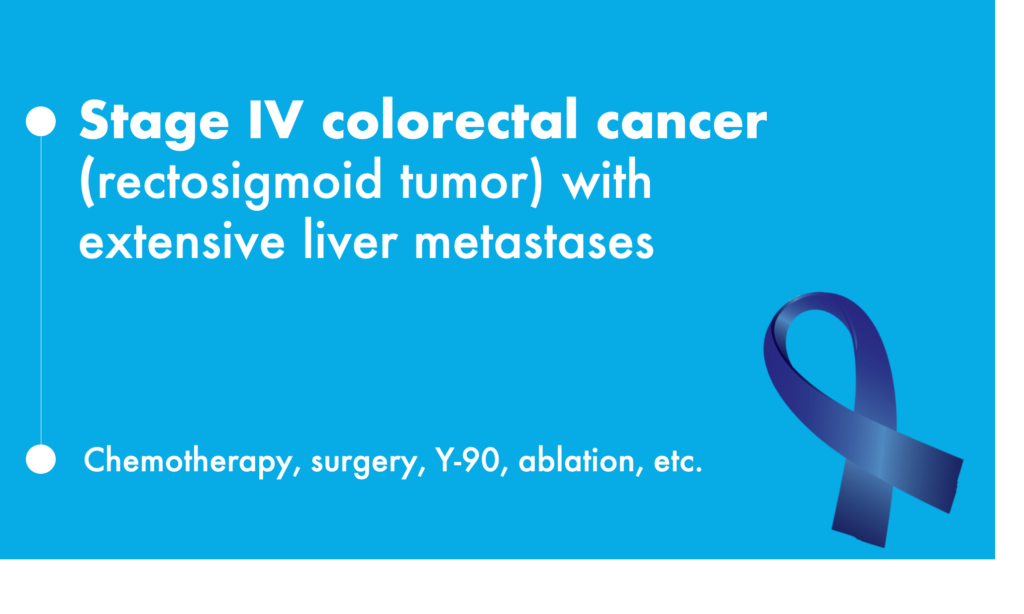Journey of Resilience
Beating Stage IV Rectal Cancer with Surgery and Chemotherapy
From Unexpected Diagnosis to Cancer-Free: A Journey of Hope
Diagnosis: An Unexpected Discovery
During a routine checkup, a 44-year-old man tested positive for fecal occult blood, prompting further medical examination. A colonoscopy revealed a type 2 rectal tumor measuring 34 × 27 mm, later confirmed as mucinous adenocarcinoma. Additional imaging showed two metastatic tumors in the liver. Initially, doctors planned to remove the rectal tumor first, followed by liver surgery. However, just one month after the first operation, a CT scan showed the liver metastases had increased from two to twelve, signaling an aggressive progression of the disease.
Treatment: A Strategic Approach to Fight the Disease
To control the rapidly growing liver metastases, doctors initiated chemotherapy with six cycles of mFOLFOX6 plus bevacizumab. Follow-up scans revealed a major tumor response—liver metastases shrank in size, and their morphology changed, suggesting the treatment was effective. However, the number of lesions had increased slightly to thirteen, raising concerns about disease progression. To further improve the patient’s chances, doctors extended chemotherapy to an additional six cycles, followed by a regimen of 5-FU, leucovorin, and bevacizumab.
After one year of treatment, doctors proceeded with an extensive liver resection, removing multiple tumor sites across different liver segments.
Outcome: A Complete Pathological Response
Post-surgery examination revealed an incredible result—no viable cancer cells remained. The tumors contained only mucin and fibrotic tissue, indicating a complete pathological response. The patient recovered well and, despite not undergoing further chemotherapy, has remained cancer-free for five years without any signs of recurrence.
Diagnosis
Mucinous adenocarcinoma of the rectum with liver metastases (initially 2, later increasing to 13)
Biomarker profile: Not reported
Treatment
Surgery to remove the rectal tumor, followed by 12 cycles of mFOLFOX6 plus bevacizumab, then liver resection after tumor shrinkage.
Outcome
Complete pathological response—no cancer cells found after treatment. Cancer-free for five years with no recurrence
Source: Arata, R., Itamoto, T., Ikeda, S., Nakahara, H., Oshita, A., Shinozaki, K., & Nishisaka, T. (2016). Pathological complete response after neoadjuvant chemotherapy for rectal cancer with synchronous multiple liver metastases: a report of an unusual case. Surgical Case Reports, 2, 1-5.
.


